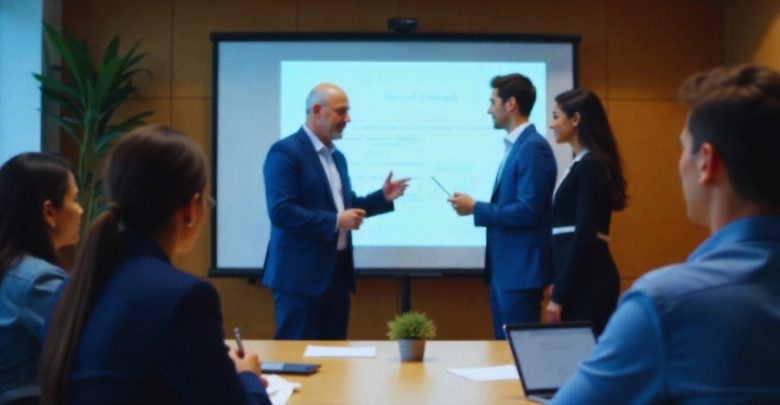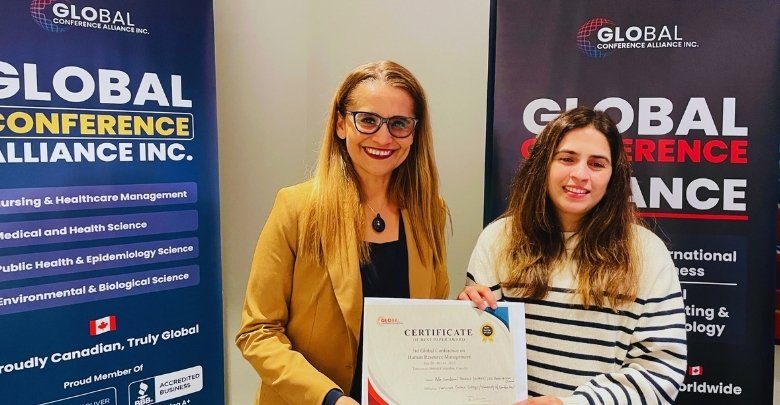Australian conferences are vibrant events that gather experts, researchers, and industry professionals from various fields. These gatherings provide a platform for sharing knowledge and networking. If you’re considering participating, you might wonder, “How can I become a speaker at an Australian conference?”
To become a speaker, you should first identify your area of expertise and research suitable conferences. Craft a compelling proposal that outlines your topic and its relevance. Submit your application by following the conference guidelines, ensuring all details are accurate. Engaging in networking can also increase your chances of being selected as a speaker.
Are you eager to learn more about this exciting opportunity? This article will guide you through the essential steps to becoming a speaker, ensuring you have all the necessary information to succeed.
Why Speak at an Australian Conference?
Speaking at an Australian conference offers numerous benefits for professionals in various fields. It provides a platform to share your knowledge and expertise with a wider audience, enhancing your reputation as a thought leader. Engaging with peers can create valuable connections that might lead to collaboration or new opportunities.
Moreover, presenting at conferences allows you to receive feedback on your ideas and research from fellow experts. This constructive criticism can help refine your work and encourage new perspectives. Moreover, being a speaker can increase your visibility within your industry, making you a go-to resource for insights and knowledge.
Lastly, speaking at these events gives you the chance to stay updated on the latest trends and practices. It is essential to be aware of the upcoming conferences in Australia to ensure you find suitable opportunities to showcase your work. Overall, the experience gained from speaking at conferences is invaluable for professional growth and development.
How Can I Become a Speaker at an Australian Conference?
Becoming a speaker at an Australian conference can be an exciting opportunity to share your knowledge and connect with others in your field. It requires a strategic approach and a good perspective of what conference organizers seek. Here are some essential steps to guide you through the journey of becoming a successful speaker.
Identify Your Area of Expertise
Start by determining what topics you are passionate about and knowledgeable about. This focus will help you target conferences that align with your expertise. It’s essential to choose a subject that you can present confidently and engagingly. Research recent developments in your field to ensure your topic is relevant. Knowing your strengths will also help you tailor your content to resonate with your audience.
Research Upcoming Conferences
Look for conferences that are relevant to your area of expertise. You can use online platforms, professional networks, and academic institutions to find information about upcoming events. Pay attention to the conference’s themes, target audience, and past speakers. This will help you decide which conference fits your profile best. Joining relevant mailing lists can also keep you informed about new opportunities.
Understand the Conference Requirements
Each conference may have specific requirements for speakers. Review the submission guidelines provided on the conference’s official website. Look for information on presentation length, format, and the application process. Understanding these requirements is crucial for tailoring your proposal effectively. This knowledge will enable you to present your ideas in a way that aligns with the conference’s expectations.
Prepare Your Proposal
Craft a compelling proposal that outlines your presentation topic, objectives, and relevance to the conference theme. Clearly state what attendees will gain from your session. Include your background and any relevant experience that supports your credibility. Tailor your proposal to match the interests of the conference organizers. A well-crafted proposal can significantly increase your chances of acceptance.
Submit Your Application
Follow the submission guidelines to submit your application. Ensure that you meet all deadlines and provide any required supplementary materials. Double-check your proposal for clarity and accuracy before submission. This step is vital for making a positive impression on the conference organizers. Submitting early can also demonstrate your enthusiasm and commitment.
Promote Your Session
If accepted, promote your session through your professional network and social media. Share details about your topic and what attendees can expect. This can help attract a larger audience to your presentation, enhancing your visibility and impact. Engaging with potential attendees can also spark interest and generate discussions about your topic.
Prepare for the Presentation
Once your session is scheduled, start preparing your presentation materials. Create engaging visuals and practice your delivery multiple times. Make sure to manage your time effectively during the presentation to cover all essential points. Additionally, anticipate possible questions and prepare thoughtful responses. Practicing in front of peers can provide valuable feedback for improvement.
By following these steps, you can increase your chances of becoming a speaker at an Australian conference. It takes time and effort, but the rewards of sharing your knowledge are worth it.
What Topics Are Suitable for Presentation?
When considering topics for a conference presentation, it’s essential to align your expertise with current trends. Topics should be relevant and engaging to the audience. Here are some ideas for suitable topics in the context of Australian conferences.
Emerging Economic Trends
Discussing emerging economic trends can captivate an audience. This could include the impact of global events on local markets or the future of specific industries in Australia. Providing insights into these trends can help attendees make informed decisions.
Sustainable Practices
With the increasing focus on sustainability, this topic is highly relevant. Presentations could cover sustainable business practices, environmental policies, or the role of economics in promoting sustainability. Engaging the audience in this conversation can inspire actionable change.
Technology and Innovation
Exploring the relationship between technology and economics can be fascinating. Topics might include the impact of AI on the workforce or how startups are reshaping industries. Highlighting innovative practices can provide fresh perspectives and encourage discussions.
Policy Analysis
Delving into policy analysis can appeal to professionals involved in governance or academia. This could include evaluating recent policy changes or proposing new economic strategies. Providing evidence-based recommendations can increase the value of your presentation.
International Trade Dynamics
Discussing international trade dynamics, particularly concerning Australia, can be compelling. Topics could explore trade agreements, market access, and the impact of global trade on local economies. Sharing insights on this subject can promote informed discussions.
Behavioral Economics
This area explores how psychological factors influence economic decisions. Presentations could delve into consumer behavior, decision-making processes, or policy implications. Engaging the audience in discussions about human behavior can provide valuable insights.
How to Network for Conference Recommendations?
Networking effectively can significantly upgrade your conference experience. It opens doors to valuable connections and insights. Here’s how to build your network for conference recommendations.
- Attend Local Events: Participating in local industry events can help you meet professionals in your field. These gatherings provide an opportunity to discuss conferences and gain insights from others. Engaging with attendees can lead to recommendations for upcoming conferences.
- Use LinkedIn: LinkedIn is a powerful tool for professional networking. Connect with individuals in your industry and participate in discussions. You can ask for recommendations on conferences that others have found beneficial.
- Join Online Forums and Groups: Online forums and groups can be valuable resources for networking. Join platforms where professionals share industry trends and insights. Engaging in discussions can lead to recommendations for relevant conferences.
- Leverage Professional Associations: Consider joining professional associations related to your field. These organizations often host events and provide resources for members. Networking within these groups can yield valuable information about conferences.
- Follow Up: After meeting someone, don’t forget to follow up. Send a message thanking them for their insights and keep the conversation going. Building a rapport can lead to more recommendations in the future.
What Are the Common Mistakes to Avoid When Searching for Conferences?
When looking for conferences, it’s important to go through the process carefully. Avoiding common mistakes can enhance your experience significantly. By being aware of potential mistakes, you can ensure you find the right conference that meets your needs.
Not Researching Enough
Failing to thoroughly research conferences can lead to missed opportunities. Take the time to explore multiple sources and platforms for information. Knowing the conference’s focus will help you choose the right one. Always check the details and background of the conference organizers.
Ignoring Registration Deadlines
Missing registration deadlines can prevent you from attending desired conferences. Keep track of important dates and set reminders to ensure timely registration. This can save you from last-minute stress. Checking for any changes in deadlines is also crucial.
Overlooking Financial Considerations
Ignoring the cost of attending conferences can lead to budget issues. Be aware of registration fees, travel expenses, and accommodation costs, including the cost of an Australian Conference Visa, which can vary based on your nationality. Planning your budget in advance will help you manage your finances effectively. Look for discounts or funding opportunities that can ease the financial burden.
Attending Too Many Conferences
While it may seem beneficial to attend as many conferences as possible, this can be overwhelming. Focus on quality over quantity. Choose conferences that align with your interests and provide valuable experiences. This focused approach will lead to more meaningful interactions.
Failing to Network
Not taking advantage of networking opportunities can limit your conference experience. Engage with other attendees and speakers to build connections. Networking can lead to collaborations and new opportunities in your field. Approach networking with a mindset of openness and curiosity.
Tips for Staying Updated on Upcoming Conferences
Staying informed about upcoming conferences can improve your professional development. Here are some effective tips to help you keep track of relevant events:
Subscribe to Newsletters
Many organizations and associations offer newsletters highlighting upcoming conferences. Subscribe to these newsletters to receive regular updates directly in your inbox. This can be a great way to discover new events you may have otherwise missed.
Follow Industry Websites
Regularly check websites that specialize in listing conferences in your field. These platforms often provide comprehensive information about various events. Bookmarking these sites can make it easier to stay informed about relevant conferences.
Use Social Media
Follow relevant organizations and influencers on social media. Many conferences promote their events through platforms like Twitter and LinkedIn. Engaging with these accounts can provide insights and updates on upcoming conferences.
Network with Peers
Engage with your professional network to share information about conferences. Colleagues and industry contacts can provide valuable insights and recommendations. Regular discussions can keep you informed about events others are attending.
Attend Local Events
Participating in local industry events can provide leads on upcoming conferences. Networking with attendees at these events can yield valuable information. Conversations about conference experiences can point you in the right direction.
Staying updated on conferences is essential for your professional growth. Utilizing various strategies can increase your ability to discover valuable opportunities. One effective method for finding upcoming conferences in Australia is to engage with professional networks, newsletters, and social media, ensuring you never miss an important event.
Frequently Asked Questions About Finding Conferences in Australia
Finding the right conference can bring up many questions. This section addresses common concerns about attending conferences in Australia. Knowing these details will help you make better choices. Here are some frequently asked questions with clear answers.
How Do I Find Conferences in Australia?
You can find conferences in Australia by searching online through dedicated platforms and websites. Furthermore, check with universities, professional organizations, and social media for announcements about upcoming events.
Are Conferences in Australia Only for Academics?
No, conferences in Australia welcome professionals from various fields. Industries like business, healthcare, and technology often hold conferences that serve to a wide audience. Anyone interested in learning and networking can attend.
What Should I Bring to a Conference?
Bring essential materials such as business cards, a notebook, and any presentation materials if applicable. Also, prepare to take notes during sessions for later reference. Comfortable clothing and shoes are also advisable.
Can I Attend a Conference Without a Paper?
Yes, many conferences allow attendees to join without presenting a paper. You can participate as a listener to gain insights and network with other professionals. Check the conference guidelines for specifics.
How Early Should I Register for a Conference?
It’s advisable to register as early as possible to secure your spot and take advantage of any early bird discounts. Registration deadlines can vary, so keep track of important dates. Early registration can also help with travel arrangements.
Final Thoughts
In conclusion, attending or speaking at conferences in Australia can be a fulfilling experience. These events offer a platform for sharing knowledge, networking, and professional growth. Engaging with peers and experts can provide new perspectives and insights that are valuable in your field.
If you are wondering how can I become a speaker at an Australian conference? it involves identifying your area of expertise, researching relevant conferences, and submitting a compelling proposal. By following the application steps, you can increase your chances of being selected to speak at these prestigious events.








